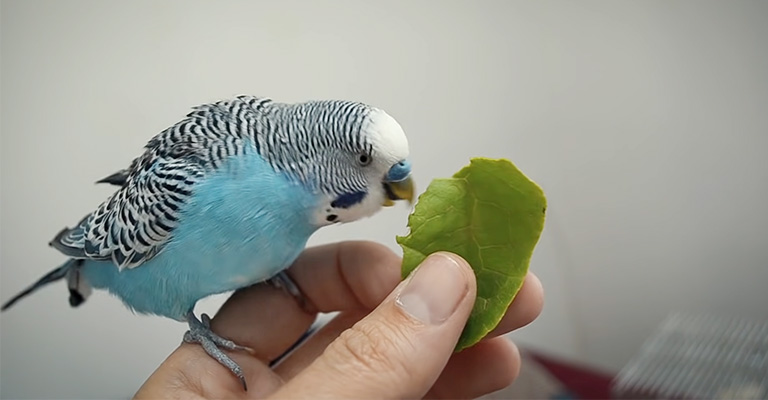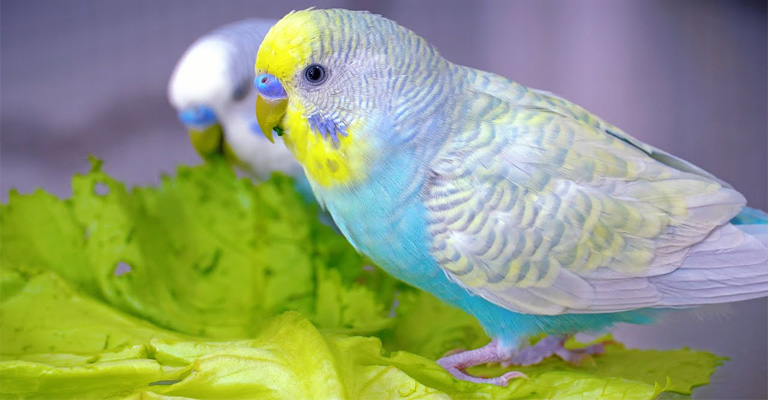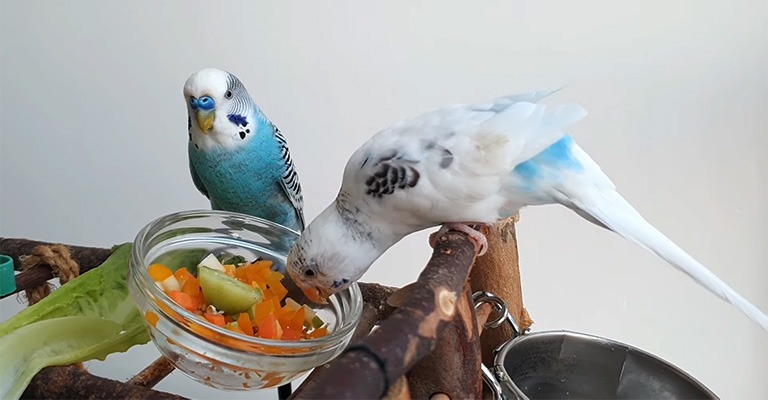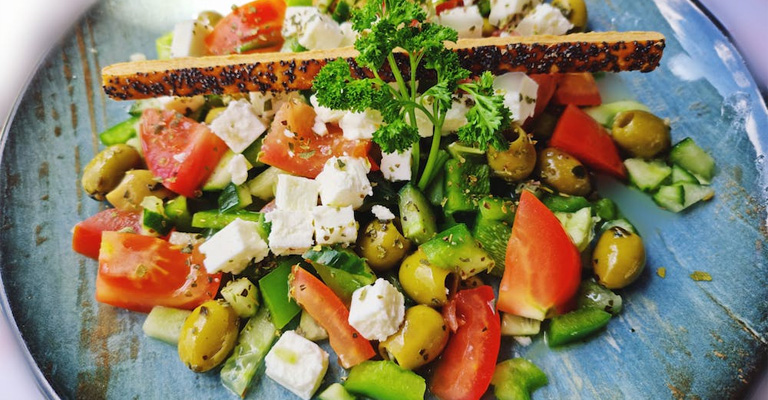Budgies, or budgerigars, are popular and delightful pet birds known for their vibrant personalities and colorful plumage.
While these small parakeets have a reputation for being relatively easy to care for, many budgie owners encounter a common challenge: getting their feathered friends to eat vegetables.
This reluctance toward vegetables can be perplexing and concerning for pet owners who want to provide the best nutrition for their avian companions.
Understanding why won’t my budgie eat vegetables is crucial in ensuring their overall health and well-being.
In this exploration, we will delve into nine potential factors that may contribute to your budgie’s aversion to vegetables. From unfamiliarity and texture preferences to health issues and dietary habits, we will uncover the intricacies of budgie behavior and dietary choices.

Why Won’t My Budgie Eat Vegetables?
Budgies, like any pet, may have various reasons for not eating vegetables. It’s essential to understand their preferences and habits to encourage a healthy diet.
Here are some possible reasons why your budgie might not be eating vegetables:
Unfamiliarity
Budgies are creatures of habit and may resist new foods. They might not recognize vegetables as food initially. Be patient and introduce them gradually, alongside their favorite seeds.
Texture
Some budgies are sensitive to texture. They might dislike the crunchiness or softness of certain vegetables. Try offering a variety to see which textures they prefer.
Color
Budgies are attracted to vibrant colors. If the vegetables you offer are dull or unappealing, they may not be interested. Opt for colorful veggies like carrots or bell peppers.
Presentation
Presentation matters. Slicing or chopping vegetables into small, bite-sized pieces can make them more enticing. Thread them onto a skewer or toy for added interest.
Social Learning
Budgies often learn from their flock. If your budgie is alone, they may not have a role model to encourage them to try new foods. Try showing them how to eat vegetables, or consider getting a second budgie.
Spoiled Food

Ensure the vegetables are fresh. Spoiled or wilted veggies can be unappetizing and may discourage your budgie from trying them.
Dietary Preferences
Just like humans, budgies have preferences. Some may prefer fruits over vegetables or vice versa. Experiment with different options to see what they like.
Health Issues
If your budgie is unwell, they may lose their appetite for vegetables or any food. Consult with a veterinarian if you suspect health issues are affecting their diet.
Overfeeding Seeds
Budgies can become addicted to seeds, which are high in fat but low in nutrients. If they fill up on seeds, they may not have an appetite for vegetables. Gradually reduce seed intake and increase vegetable offerings.
Remember that persistence and patience are key when introducing new foods to your budgie’s diet. It’s essential to offer a balanced diet that includes a variety of vegetables to ensure their overall health and well-being.
How Do I Get My Budgie To Eat Vegetables?

I can help you with some techniques to get your budgie to eat vegetables. Here are some of them:
Introduce Vegetables Gradually
Budgies are naturally seed and grain-eating birds, so they may not recognize vegetables as food at first. You can try to introduce vegetables gradually by mixing them with their favorite seeds or offering them as treats.
Experiment With Different Types Of Vegetables
Budgies have different preferences when it comes to food, so they may not like some vegetables that you offer them.
You can experiment with different types of vegetables, such as leafy greens, root vegetables, or stem vegetables, and see which ones your budgie likes best.
Hang A Leaf Of Lettuce Or Kale In The Cage
This technique will work best for leafy vegetables. You can hang a leaf of lettuce or kale in the cage and wait to see if your budgie will mistake it for a new shredding toy.
Shredding is a natural behavior for budgies, so they are likely to be curious about the texture of this new ‘toy.’’
Wrap Your Budgie’s Favorite Toy In Leafy Greens
This is another way to use your budgie’s instincts to get them to eat fruits and veggies. For this method, you want to use your bird’sbirds’ instinct to forage. This also works very well with leafy greens like lettuce.
You’ll want to use your budgie’s all-time favorite toy for this. All you need to do is simply wrap the toy in leafy greens and wait.
Stick Some Small Pieces Of Fruits Or Veggies In Between The Parts Of The Toy
This is the last one that includes their toys, I promise. This method also includes your bird’s favorite toy. All you need to do is stick some small pieces of fruit or veggies in between the parts of the toy.
Your budgie will think the fruits and veggies are part of the toy itself and start to play with them.
Mix Other Foods With Their Usual Diet

Always be gentle when you are introducing fruits or vegetables to your parakeets. You can try out a small amount first, then mix it thoroughly with their seed diet.
This way, your budgie will get used to the new flavors and textures without being overwhelmed by them.
Feed Them In The Morning
Your budgies are most likely hungry in the morning, so this is a good time to offer them some fresh food. They may be more willing to try something new when their appetite is high.
Eat In Front Of Them
Budgies are social animals, and they learn from observing others. If you eat some fruits or veggies in front of them, they may become interested and want to join you.
Praise And Reward Them For Eating Vegetables
Budgies love attention and positive reinforcement4. If you praise and reward them for eating vegetables, they will associate it with something good and enjoyable. You can use verbal praise, head scratches, or treats as rewards.
I hope these techniques will help you get your budgie to eat more vegetables and stay healthy!
What Are Some Alternatives To Vegetables For My Budgie?
I can help you with some alternatives of vegetables for your budgie. Here are some of them:
Fruits
Fruits are a great source of vitamins, antioxidants, and water for your budgie. They can also provide some natural sweetness and variety to your bird’s diet.
You can offer your budgie fruits such as bananas, strawberries, apples, grapes, oranges, peaches, blueberries, pears, raisins, mango, melon, nectarines, cherries (without the pits), and kiwis.
However, you should limit the amount of fruits to about 10% of your budgie’s daily food intake, as they are high in sugar and can cause obesity or diarrhea if overfed.
Nuts
Nuts are another alternative to vegetables that your budgie can enjoy as a treat. Nuts are rich in protein, healthy fats, and minerals that can benefit your budgie’s health and feather condition.
You can give your budgie nuts such as almonds, walnuts, pistachios, cashews, and pecans.
However, you should only offer nuts occasionally and in small amounts, as they are also high in fat and calories and can cause weight gain or liver problems if overfed.
Herbs
Herbs are not only tasty but also beneficial for your budgie’s health. Herbs can provide some vitamins, minerals, and phytochemicals that can boost your budgie’s immune system and digestion.
You can offer your budgie fresh or dried herbs such as basil, parsley, cilantro, mint, oregano, thyme, rosemary, and dill.
Sprouted Seeds
Sprouted seeds are seeds that have been soaked in water and allowed to germinate.
Sprouted seeds are more nutritious than regular seeds, as they contain more protein, enzymes, vitamins, and minerals that can improve your budgie’s health and vitality.
Eggs
Eggs are a good source of protein and calcium for your budgie. They can also provide some essential amino acids that your budgie may not get from plant sources.
You can boil or scramble eggs for your budgie and offer them once or twice a week. You can also give your budgie some eggshells as a calcium supplement.
Cooked Grains
Cooked grains are another alternative to vegetables that your budgie can eat. Cooked grains are high in carbohydrates and fiber that can provide energy and aid digestion for your budgie.
You can cook grains such as rice, oats, barley, buckwheat, millet, quinoa, couscous, and pasta for your budgie.
FAQ
Budgies may resist vegetables due to unfamiliarity. They need time to adjust to new foods. Be patient and introduce veggies gradually alongside their regular diet.
Forcing your budgie to eat vegetables isn’t recommended. Instead, make vegetables enticing by offering them in creative ways and allowing your budgie to explore them voluntarily.
If your budgie is addicted to seeds, slowly reduce seed intake while increasing vegetable offerings. This gradual transition can help them adjust to a healthier diet.
Budgies are attracted to colorful veggies like carrots and bell peppers. Experiment with various options to discover your budgie’s preferences.
Yes, health problems might affect their appetite. If your budgie refuses veggies consistently, consult with a vet to rule out any underlying issues and receive tailored advice.
Conclusion
In the pursuit of providing optimal care for our beloved budgies, addressing their reluctance to consume vegetables is a vital aspect of their well-being.
As we’ve explored the nine reasons why your budgie may be shunning these nutritious offerings, it becomes evident that patience, persistence, and a nuanced understanding of your pet’s preferences are key to overcoming this dietary hurdle.
Remember that each budgie is unique, and what works for one may not work for another.
Offering a diverse selection of colorful, fresh vegetables presented in an appealing manner can gradually encourage your budgie to expand its palate. Additionally, seeking advice from avian veterinarians or experienced bird enthusiasts can provide invaluable guidance.